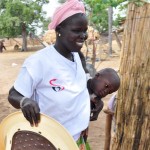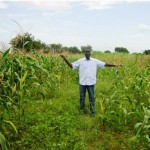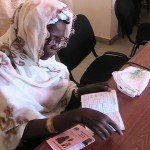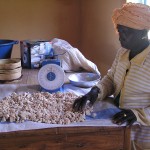
Over the past 30 years, Senegal has expanded access to health services by shifting them deeper into its rural communities, where over 42 percent of the population still lives and where – in certain villages – only 12 percent of the population can access public health services annually.
New Rice for Africa, or NERICA, is a hardy, high-yielding rice varietal that USAID is helping bring to farmers, including Coulibaly. Through the United States' flagship food security initiative, Feed the Future, USAID works with grassroots organizations and producer cooperatives to make NERICA available on a large scale in Senegal to increase rice production, and in turn, improve families’ food security and incomes.

Agricultural producers in Senegal are finding that small improvements in their farming techniques can yield big benefits when it comes to protecting their livelihoods against risk during growing season. Conservation farming, which has been promoted in Senegal by USAID since 2009, is based on the premise of “doing more with less.” Farmers till and plant only a portion of their land each season, growing crops in small, evenly-spaced basins rather than plowing entire fields. Not only does most of the land remain undisturbed, but this technique reduces soil erosion and run-off during rainfall, helping the land to retain both water and nutrients.

Since 2001, Senegal has offered free antiretroviral (ARV) therapy to HIV-positive patients. Yet many patients interrupt or stop treatment due to the cost of treating related infections and the frequency of check-ups needed to monitor their progress.
USAID has launched an innovative pilot project to encourage HIV-positive patients to continue ARV treatment. The project not only increases access to health insurance and care, but also promotes financial sustainability by offering business loans to vulnerable individuals. This is achieved through a locally-managed fund that serves as a guarantee for the loans and compensates the insurance groups for extraordinary costs associated with HIV care.

Kadiatou Ndao is proud of her sacks brimming with baobab and jujube powder. In just three years, she has marketed enough powder pounded from dusty fruit kernels and berries to quadruple her profits.








Comment
Make a general inquiry or suggest an improvement.